
Warren Pechey sent this cute video to Latest Sightings. He filmed the encounter while visiting Makhasa Community Game Reserve in KwaZulu-Natal, South Africa.
Easily distracted youngster
While travelling through thick vegetation on a game drive, Warren and his companions came upon a herd of elephants. While most of the herd continued feeding, a young male calf became distracted by their presence.
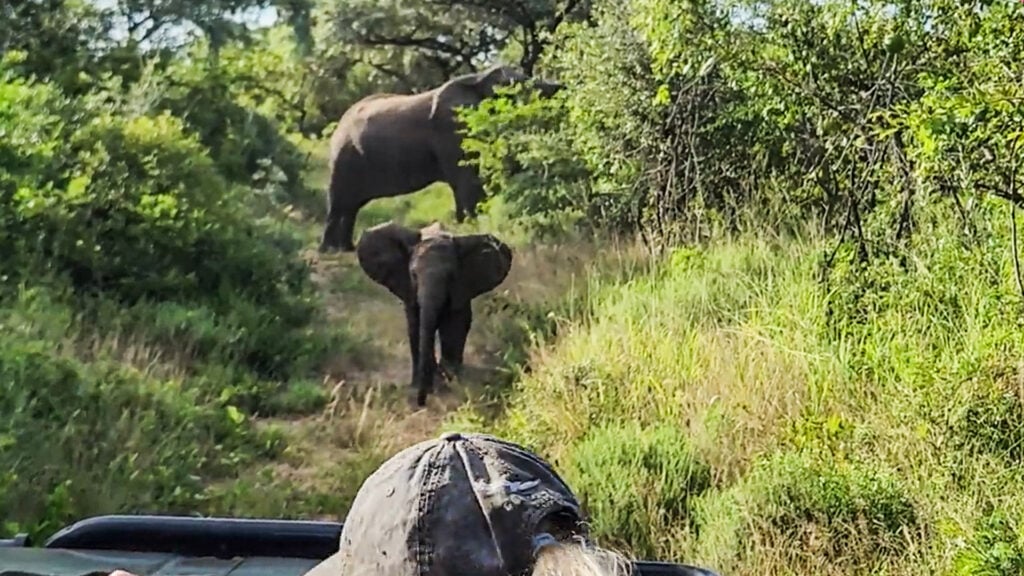
As can be seen, the path on which Warren was travelling was rather narrow. With nowhere to turn, a mini stand-off ensued.
Intimidation tactics
While we can’t be certain, the calf’s reaction suggests it may have been seeing a vehicle for the first time. And, being a typically curious youngster, he set out to investigate.
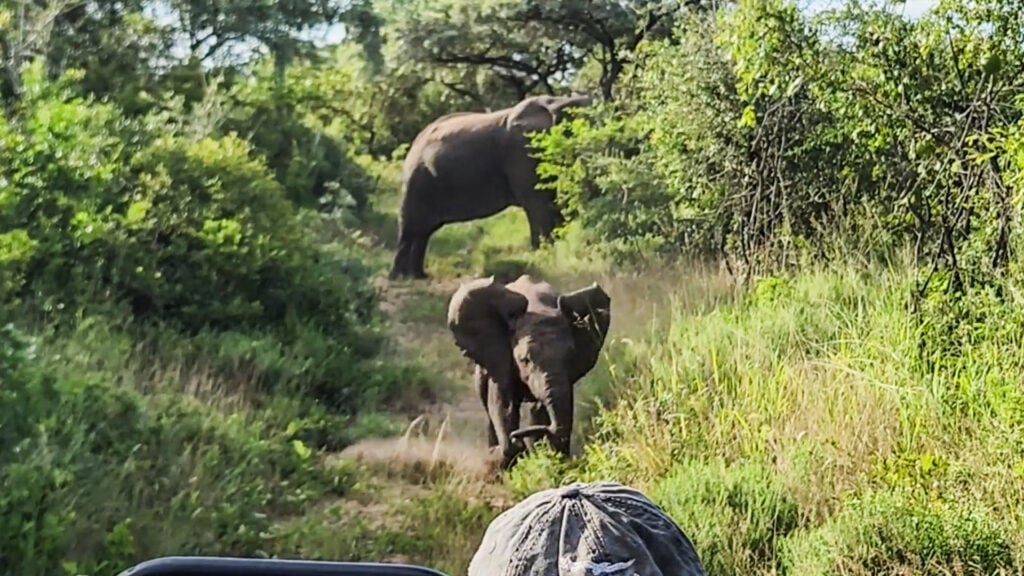
In a perfect imitation of an adult, the calf assumed his most threatening stance. With ears held wide and head raised high, the precocious pachyderm sought to intimidate the mysterious intruder.
Surrender, or else!
Then, seeing that the vehicle did not immediately and unconditionally give way, the calf felt it had no choice but to up the ante. With that, he escalated his ever-so-threatening display with a mini mock charge.
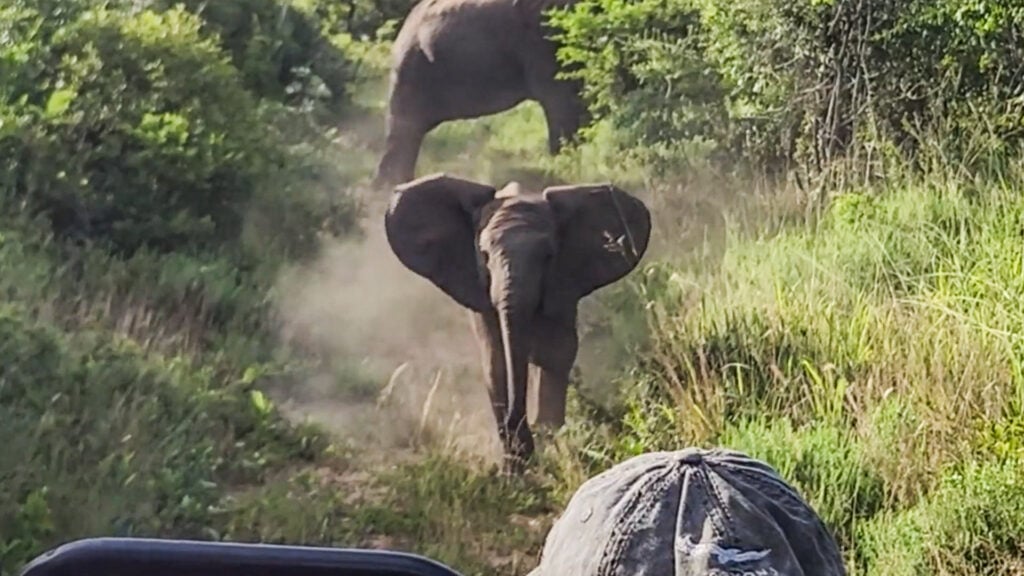
While the calf’s mom continued feeding contentedly in the background, the calf repeatedly charged, backed up, and charged again.
Unbeknownst to the calf, his display was not quite having the fear-inducing effect he’d hoped. If anything, he was making his assumed foes laugh.
Not easily deterred
Nevertheless, the brave little bull was not easily deterred from his mission. After all, for all he knew, his Mom and family might be in mortal danger.
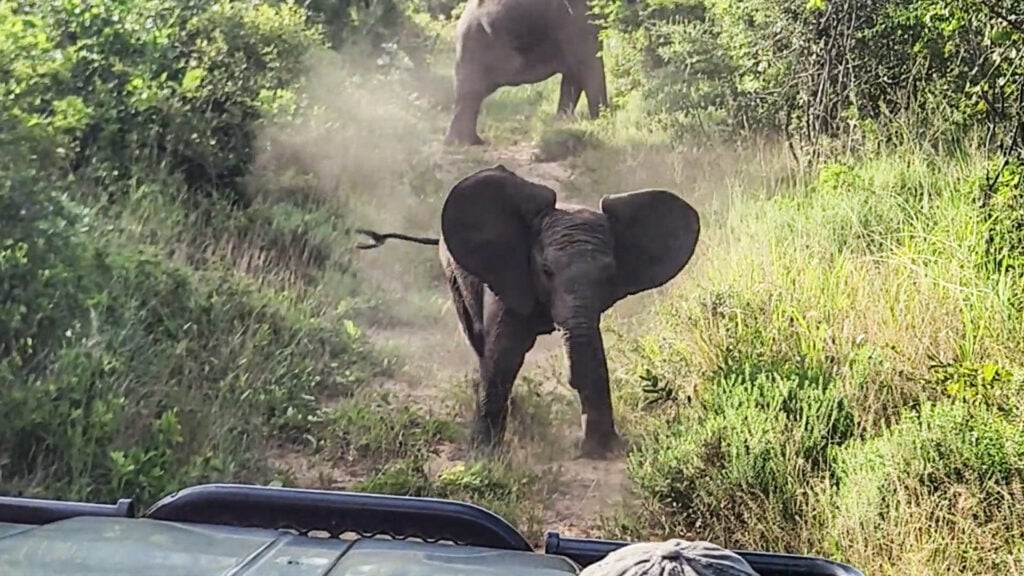
As the showdown continued, the calf showed off his full repertoire of warning behaviour… and a few little extras, just in case the message wasn’t getting through.
At one point, he even jumped and stomped a bit, as if throwing a tantrum at not getting his way.
Doubt creeps in
Eventually, though, the bold little bull started to have some doubts. Despite his best efforts, the intruder had not moved an inch and was making weird, giggly sounds to boot.
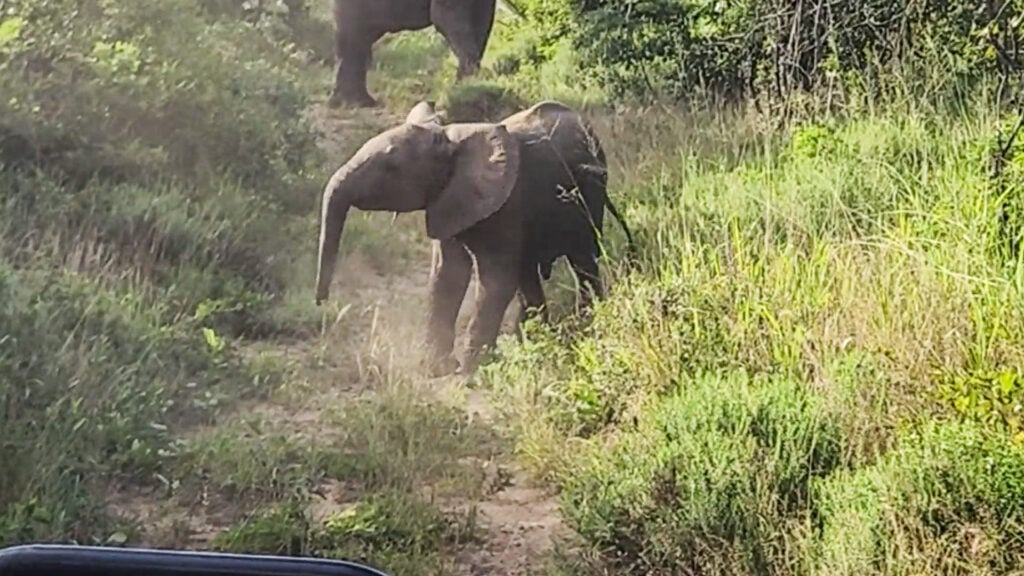
As any self-respecting bull knows, such disrespectful behaviour is worthy of only one response: the dreaded side-eye.
Get our Best Sightings as they Come in
Better check on Mom
After laying down his marker in no uncertain terms, it seems the calf suddenly remembered that his mother might need some comforting.
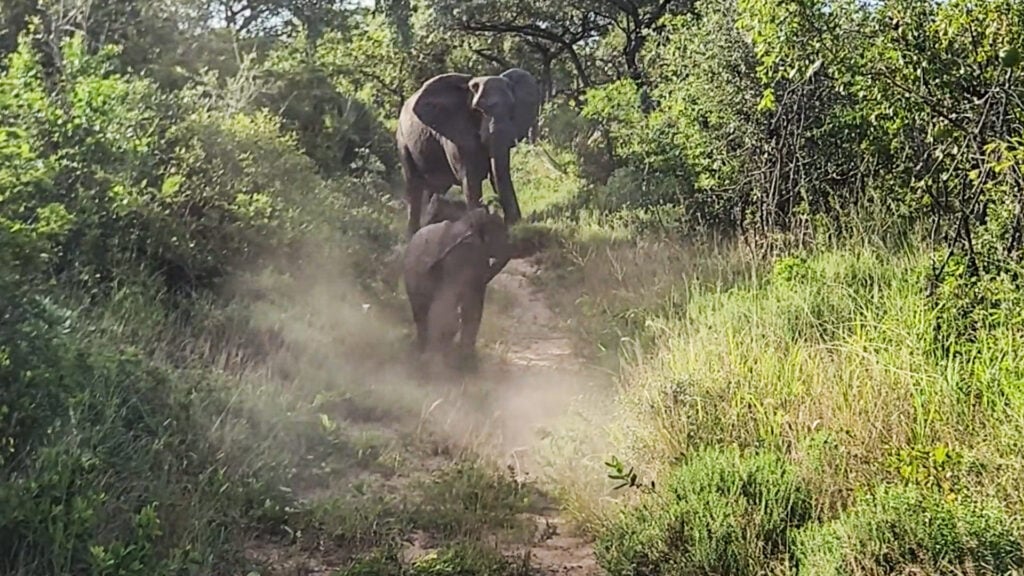
So, doing an abrupt about turn, the calf ran back to his surprisingly relaxed mother. No doubt, he had much to report.
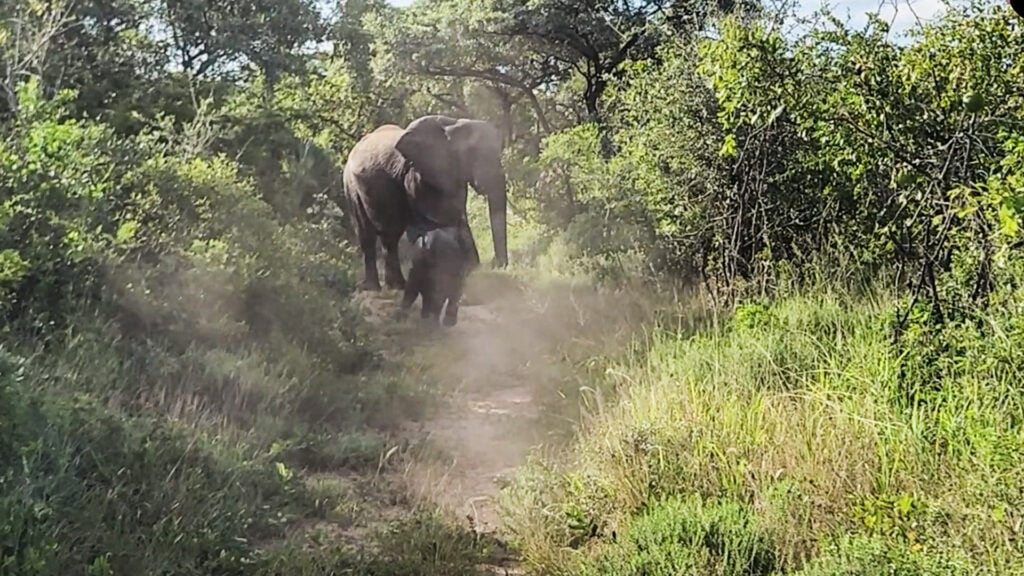
After all, it’s not every day you’re called upon to leap into action in defence of your loved ones.
Play-play, but serious
As cute as the calf’s behaviour is in this video, it is also a vital part of its early development. As with all young animals, including ourselves, playful behaviour is instrumental in learning about their environment and its various inhabitants.
Despite their full-grown size, elephants don’t have it all their way. As such, they’ve evolved a range of behaviours designed to ward off potential threats.
In the video, the calf is effectively practising these actions and, in the process, learning about boundaries.
His body language is a perfect imitation of how an adult would behave if they felt threatened.
By raising their heads and flaring their ears, elephants increase their visual profile. The posture shows alertness and physical might.
Should that fail to deter, the behaviour escalates to mock charges, sometimes accompanied by trunk-lashing and trumpeting.
However, when an elephant decides to attack in earnest, it will flatten its ears, curl up its trunk and often cease vocalising before charging.
By giving all these warnings, elephants actually try to de-escalate tensions, and in so doing, avoid injury and further stress.
Knowing how to read these signs is the best way to increase your enjoyment of wildlife we can think of.
